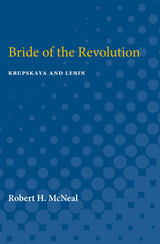
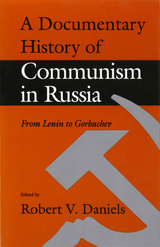
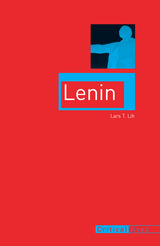
After Karl Marx, Vladimir Lenin (1870–1924) is the man most associated with communism and its influence and reach around the world. Lenin was the leader of the communist Bolshevik party during the October 1917 revolution in Russia, and he subsequently headed the Soviet state until 1924, bringing stability to the region and establishing a socialist economic and political system.
In Lenin, Lars T. Lih presents a striking new interpretation of Lenin’s political beliefs and strategies. Until now, Lenin has been portrayed as a pessimist with a dismissive view of the revolutionary potential of the workers. However, Lih reveals that underneath the sharp polemics, Lenin was actually a romantic enthusiast rather than a sour pragmatist, one who imposed meaning on the whirlwind of events going on around him. This concise and unique biography is based on wide-ranging new research that puts Lenin into the context both of Russian society and of the international socialist movement of the early twentieth century. It also sets the development of Lenin’s political outlook firmly within the framework of his family background and private life. In addition, the book’s images, which are taken from contemporary photographs, posters, and drawings, illustrate the features of Lenin’s world and time.
A vivid, non-ideological portrait, Lenin is an essential look at one of the key figures of modern history.
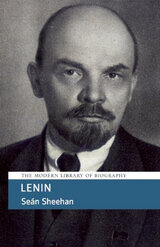

Lenin’s politics continue to reverberate around the world even after the end of the USSR. His name elicits revulsion and reverence, yet Lenin the man remains largely a mystery. This biography shows us Lenin as we have never seen him, in his full complexity as revolutionary, political leader, thinker, and private person.
Born Vladimir Ilyich Ulyanov in 1870, the son of a schools inspector and a doctor’s daughter, Lenin was to become the greatest single force in the Soviet revolution—and perhaps the most influential politician of the twentieth century. Drawing on sources only recently discovered, Robert Service explores the social, cultural, and political catalysts for Lenin’s explosion into global prominence. His book gives us the vast panorama of Russia in that awesome vortex of change from tsarism’s collapse to the establishment of the communist one-party state. Through the prism of Lenin’s career, Service focuses on dictatorship, the Marxist revolutionary dream, civil war, and interwar European politics. And we are shown how Lenin, despite the hardships he inflicted, was widely mourned upon his death in 1924.
Service’s Lenin is a political colossus but also a believable human being. This biography stresses the importance of his supportive family and of its ethnic and cultural background. The author examines his education, upbringing, and the troubles of his early life to explain the emergence of a rebel whose devotion to destruction proved greater than his love for the “proletariat” he supposedly served. We see how his intellectual preoccupations and inner rage underwent volatile interaction and propelled his career from young Marxist activist to founder of the communist party and the Soviet state—and how he bequeathed to Russia a legacy of political oppression and social intimidation that has yet to be expunged.

This is an entirely new collection of Lenin's writing. For the first time it brings together crucial shorter works, to show that Lenin held a life-long commitment to freedom and democracy. Le Blanc has written a comprehensive introduction, which gives an accessible overview of Lenin's life and work, and explains his relevance to political thought today.
Lenin has been much maligned in the mainstream, accused of viewing 'man as modeling clay' and of 'social engineering of the most radical kind.' However, in contrast to today's world leaders, who happily turn to violence to achieve their objectives, Lenin believed it impossible to reach his goals 'by any other path than that of political democracy.'
This collection will be of immense value to students encountering Lenin for the first time, and those looking for a new interpretation of one of the 20th century's most inspiring figures.
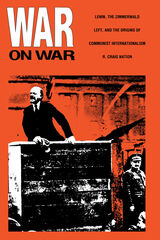
READERS
Browse our collection.
PUBLISHERS
See BiblioVault's publisher services.
STUDENT SERVICES
Files for college accessibility offices.
UChicago Accessibility Resources
home | accessibility | search | about | contact us
BiblioVault ® 2001 - 2024
The University of Chicago Press









